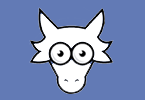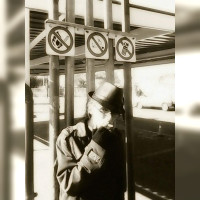Do you know the difference between monkshood and wolf’s bane? Magic and the occult are popular threads throughout fiction, and it takes special flair to put it down on paper. If you want to dive into writing the occult for fiction, you have to get the facts right – and then, of course, embellish wildly from there, because that’s your power as a fiction writer. Here’s how to research the occult when you’re writing.
Witchcraft versus Wicca
Wicca is considered to be a religion; witchcraft is considered to be a path. Wicca has its origins with Gerald Gardner and the New Forest Coven (The Gardnerian Book of Shadows). Witchcraft is exceptionally vast, and there are hundreds of directions – with variations in many different directions and countries. It’s important to ask yourself where your fiction is set, where your practitioners come from and when your fiction takes place – that can help.
The Salem Witch Trials
For the record, the Salem trials really happened. But it was not just witches prosecuted: Among the prosecuted were also gay people, redheads and the disabled. The Malleus Maleficarum was the guideline used at the time, and History.com, Britannica and Smithsonian Mag can give you solid background on the events.
Magic versus Magick
Magic can be spelled with or without a k at the end. Generally, practitioners choose to spell it with the k to distinguish it from conjuring and card tricks – though not always.
Magical Languages
Magical languages and alphabets can give you a lot of room for fun in your writing – especially when it comes in the form of a mystery or riddle that the protagonist (and reader) still have to get to the bottom of. A couple of suggestions include the Theban alphabet, Runes (start with the Elder Futhark) and Enochian (originating with John Dee and Edward Kelly). Of course, there are many more.
Magic Has Rules… Really
Magic(k) set in fiction needs set rules. Decide on these before you set out to write anything. Ask questions that have a larger bearing on the universe than your story needs right now – for example, ask what happens according to the rules of your universe’s magic if two spells are cast against each other and document the results, even if it never happens in your story.
Herbs and Crystals for Magic(k)
Herbs are considered to have many different uses – both for healing and for potions, charms or amulets. You can find a comprehensive list of herbs for healing magic in Herb Magic for Beginners, the Pocket Spell Creator by Kerri Connor and Wicca: A Guide for the Solitary Practitioner by Scott Cunningham or online at Witchipedia. Sage, for example, is considered to purify; cinnamon, on the other hand, is considered good especially for luck and money spells. The same is considered true for crystals, and each crystal has a magic(k)al equivalent. Rose quartz, for example, is for love.
Magical Creatures
The study of magical creatures is called cryptozoology, and it’s considered by mainstream science to be pseudoscience – but by many practitioners to be an undiscovered branch of science. When you’re writing fiction, belief in it only really matters within the scope of your universe: Do some of your characters believe and others not? Sometimes cryptozoology gets it right, like in the case of the Coelacanth, which turned out to be real.
Angels, Demons, and Spirits
There are extensive lists of demons, angels and spirits with historical context: It pays to research these exceptionally well before you include a reference, choose an existing name or create a new one. The Encyclopaedia of Demons and Angels is a great starting-point reference for writers who need historical context.
Tarot Cards
Tarot decks contain 78 illustrated cards. Common decks include the Rider-Waite, the Marseilles Tarot and the Thoth Tarot by Aleister Crowley. It’s split up into the Major Arcana and Minor Arcana. Learning the Tarot by Joan Bunning was my go-to reference, though there are thousands of references for tarot card meanings: Generally, they are the same. Whether or not you considered reversed (or opposite) meanings when cards are upside down is up to you: Many readers don’t.
Voodoo / Hoodoo
Voodoo is an entire path in itself. There are many practitioners all over the world. It is in voodoo where you commonly find Mojo Bags (or charm bags); a collection of herbs and crystals worn by the practitioner for a specific effect. The Gods are called the Loa, and each has their own sigils. A great book for research is The Hoodoo Voodoo Spellbook by Denise Alvarado. Hoodoo and voodoo is deeply connected with the spirits of the crossroads and with blues, so also dig there.
Telling Fortunes
There are many ways to tell fortunes beyond tarot cards, some more obscure than others. You might also find it useful to use divination techniques yourself when trying to determine the path a character should take – and you might be surprised at the creativity this technique can spark into your writing.
- Astrology: Astrology is telling fortunes with the celestial bodies – planets and stars. At its most basic, you should know that there are 12 different signs rotating throughout the year. These are Aries, Taurus, Gemini, Cancer, Leo, Virgo, Libra, Scorpio, Sagittarius, Capricorn, Aquarius and Pisces.
- Astrology (Chinese Zodiac): The Chinese Zodiac signs are the rat, ox, tiger, rabbit, dragon, snake, horse, sheep, monkey, rooster, dog and pig. For background on the Chinese Zodiac, try China Travel Guide’s website for more information.
- Black Mirrors: Mirror, mirror on the wall… Black mirrors and pools of water (or ink) are used for what’s called scrying. Mirrors are most often made of obsidian crystal and bowls of silver, but there are many different variations.
- Numerology: Numerology is the magical study of numbers and dates. Each number has a magical equivalent, and as a writer you should note that it differs by country as much as magic(k) itself: A four is very bad luck in Chinese, where it’s too close to the character for death, but good luck in most other places.
- Palmistry: Palmistry is an ancient art to read the palms for the life-path. Keep in mind that marks of the trade can often be seen on the hands – carpenters, for example, will have obvious bone spurs, different from those that writers have.
- Pendulum Dowsing: Pendulum dowsing involves a heavy object like a ring or crystal suspended from a ring and waved over available options or sometimes a map.
- Runes: Casting runes are a fascinating direction, and can be arranged in the same way as the tarot. Each rune has a meaning, and there are 24 runes in the Elder Futhark. For more background, try The Rune Site.
- Tea Leaves: Tea leaves use the left-over bits from a cup of tea to tell your fortune; the meanings are usually apparent, such as a baby meaning a new experience in life – or a physical birth.
Of course, there are an almost uncountable amount of other methods. This doesn’t mean to be an exhaustive list, just a basic starting point. These can include bone throwing, divination by animal innards (seen in various cultures, including Egypt) and divination by clouds. Be creative, though always do your background research to see where it originated.
Magic by Country
Magic and its beliefs differ widely by country. Keep this in mind when you write. For example, JK Rowling’s readers were upset when she placed the African headquarters for Magic in Uganda while setting up Pottermore. Why? Because Uganda has a hugely high persecution rate of those considered witches. Do your research on magic, beliefs and traditions by country before you write a word.
Nonfiction Books for Research
There are thousands of occult volumes available depending on the chosen topic. Don’t consider this an exhaustive list: Do your research based on what type of magic your characters are practicing, and what your fictional universe allows for. Familiarize yourself with the basics of these.
- Magic Without Tears by Aleister Crowley
- The Garderian Book of Shadows by Gerald Gardener
- The Complete Guide to Witchcraft by Raymond Buckland
- The Sacred Magic of Abrahamelin the Mage
- The Goetia by Aleister Crowley
Fiction for Research
Seeing how other writers have used magic as a fictional vehicle can be a great help to your own. Some fictional writers that are worth recommending are below. Of course, there are more: Find your favourite and research.
- Justin Gustanis is best known for the Quincey Morris Supernatural Investigations series, and his blend of supernatural horror, action and witchcraft has always been fascinating.
- Neil Gaiman explores magic and mythology as a theme in great depth through his work; in particular, the American Gods novel and series are a great illustration of using mythology in fiction – and even of blending it with modern Americana.
- JK Rowling is, of course, the author of Harry Potter – and her research is 100% on-point. For example, in the first book, Nicolas Flamel really is considered to have been an alchemist intertwined with the story of the Philosopher’s Stone.
- JRR Tolkien wrote the incredible classic Lord of the Rings series, which combines stories of sorcery and magical creatures – and even the creation of several languages – for a solid, beautiful universe.
- Shakespeare had, of course, written magic well into the fabric of Macbeth and A Midsummer Night’s Dream – it’s another great starting point for finding magic written into fiction.
Different Directions
There are many ways to practice magic: There are kitchen witches, voodoo practitioners, Wiccans, ceremonial magicians; then there are those who consider themselves to be real-life vampires or Luciferians. Which one you will choose to research depends on where your fiction is set, who is practicing it and when – of course, we don’t need to tell you that you should research each direction individually, and always be as thorough as an archaeologist.
Museums of the World
There are many magical museums of the world that can offer writers important historical context when writing. Whether you hold magical beliefs yourself or not, approach this as an archaeologist. The Museum of Witchcraft and Magic in the UK and the Buckland Museum of Witchcraft and Magic are two great starting points for your research.




